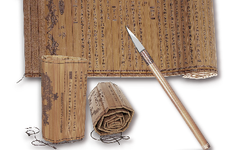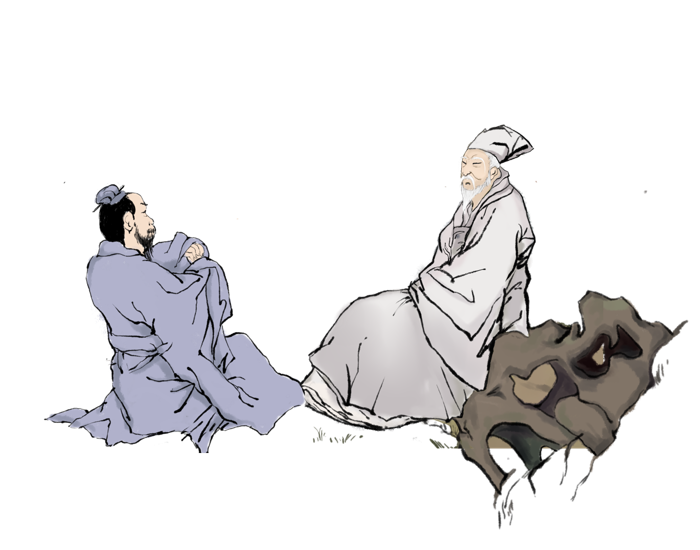
Dan Shen

Breaks stagnation and regulates menstruation
Generates new blood and eliminates evil
Removes excessive bleeding
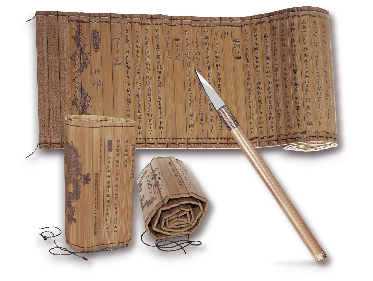
Dan Shen, a name in traditional Chinese medicine, refers to the dried root and rhizome of the plant Salvia miltiorrhiza. It is harvested in spring and autumn, cleaned of dirt, and dried.
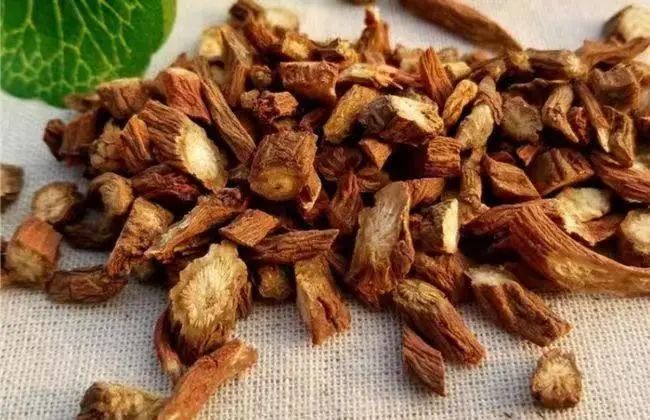
Name: Dan Shen
Pinyin: DAN SHEN
Alias: Hong Gen, Da Hong Pao, Xue Shen Gen
Properties: Bitter taste, slightly cold nature; enters the Heart and Liver meridians
Preparation Methods:
1. Dan Shen: Take the raw herb, remove impurities and residual stems, wash thoroughly, moisten, cut into thick slices, and dry.
2. Wine-prepared Dan Shen: Mix Dan Shen slices with yellow wine, let it soak until fully moistened, then stir-fry over low heat until dry, cool down. Ratio: 100 kg of Dan Shen to 10 kg of yellow wine.
3. Fried Dan Shen: Place Dan Shen slices in a pan and stir-fry over low heat until they turn purple-brown with some charred spots, then cool down.
4. Rice-prepared Dan Shen: First, moisten the pan with water, sprinkle in rice, heat until smoking, then add Dan Shen slices and stir-fry over low heat until deep purple, remove, sift out the rice, and cool down. Ratio: 100 kg of Dan Shen to 20 kg of rice.
5. Charred Dan Shen: Place Dan Shen slices in a pan and stir-fry over high heat until charred black, sprinkle with a little water to extinguish flames, then cool down.
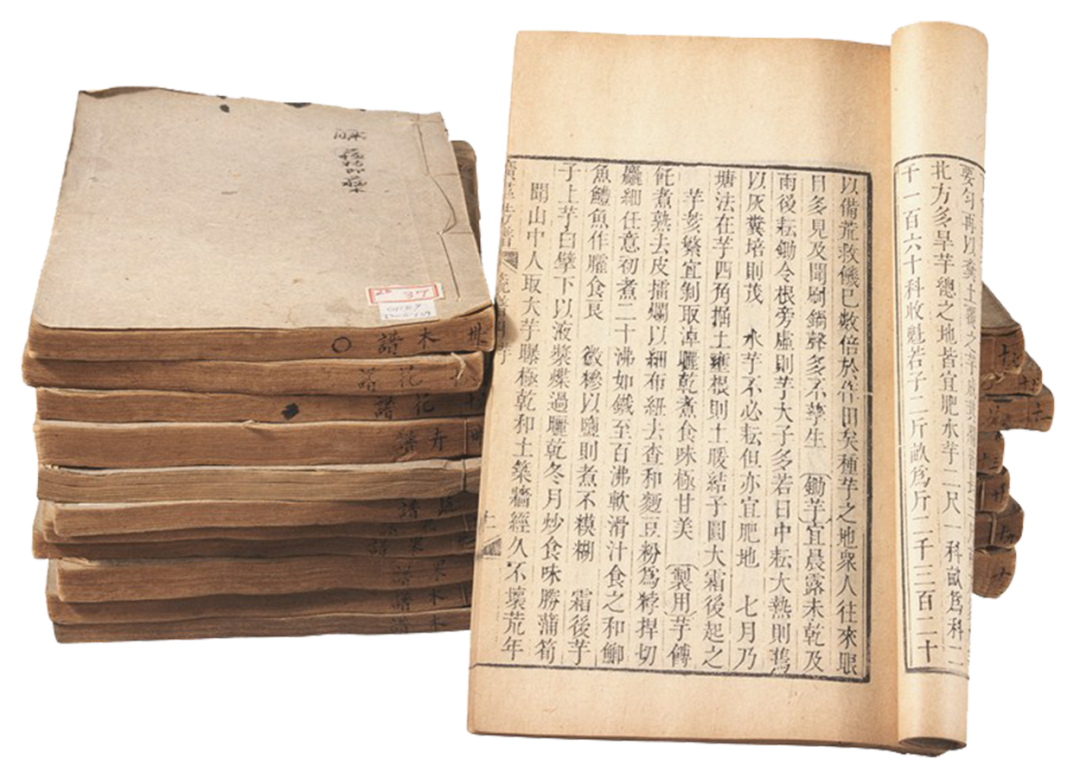
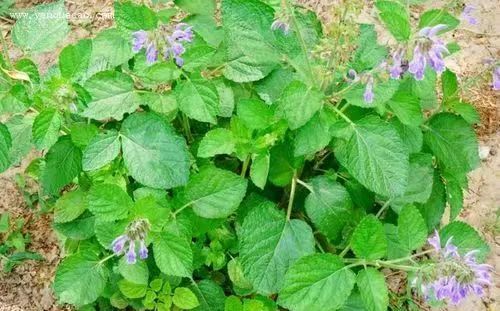
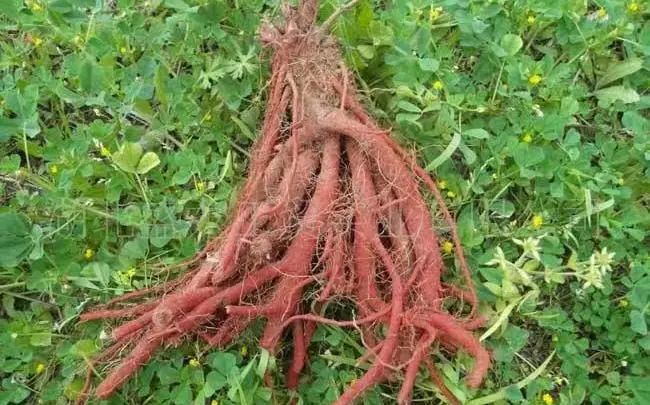
Dosage: Decoction, 5-15g. For activating blood and resolving stasis, it is best used after wine preparation.
Functions and Indications: Activates blood, dispels stasis, regulates menstruation, alleviates pain, clears the heart, relieves irritability, cools blood, and resolves abscesses. It is used for chest pain due to blood stasis, abdominal and flank pain, masses, painful obstruction due to heat, irritability and insomnia, irregular menstruation, dysmenorrhea, amenorrhea, and painful swellings.
Precautions: Contraindicated for women with excessive menstruation and no blood stasis; use cautiously in pregnant women; avoid with Li Lu (Veratrum).
Related Combinations:
1. Dan Shen with Gui Zhi: Dan Shen is good at activating blood and resolving stasis; Gui Zhi helps to warm and open the meridians. Together, they warm Yang, activate blood, and alleviate pain, suitable for chest pain due to Yang deficiency and blood stasis.
2. Dan Shen with Ge Gen: Dan Shen excels at activating blood and resolving stasis, while Ge Gen lifts and releases, clears heat, and generates fluids. Together, they enhance the effects of activating blood, resolving stasis, generating fluids, and opening the meridians, suitable for Yin deficiency with blood stasis.
3. Dan Shen with Gua Lou: Dan Shen activates blood and cools blood, reduces swelling and alleviates pain, excels at clearing heat from the blood; Gua Lou clears heat, transforms phlegm, disperses masses, and excels at clearing heat from the Qi level. Together, they significantly enhance the effects of clearing heat, activating blood, and reducing swelling, suitable for breast abscesses and painful swellings due to heat toxin obstruction.
4. Dan Shen with Sha Ren: Dan Shen excels at activating blood and resolving stasis; Sha Ren excels at moving Qi and relieving stagnation. Together, they effectively alleviate pain due to blood stasis and Qi stagnation, suitable for stomach pain and chest pain due to blood stasis and Qi stagnation.
5. Dan Shen with Ren Shen: Dan Shen activates blood and resolves stasis while nourishing blood; Ren Shen greatly tonifies Yuan Qi and can tonify Qi and generate blood. Together, they nourish and activate blood while tonifying Qi and generating blood, suitable for heart palpitations, chest tightness, chest pain, or irregular menstruation due to Qi deficiency and blood stasis.
Distinguishing Medicinal Uses:
1. Raw Dan Shen vs. Wine-prepared Dan Shen: Raw Dan Shen has stronger effects in dispelling stasis and alleviating pain, calming the heart and mind, and activating blood and regulating menstruation. Due to its cold nature, it is often used for sores and abscesses due to blood heat and stasis, postpartum stasis pain, amenorrhea, abdominal pain, chest and abdominal pain, and limb pain. Wine-prepared Dan Shen, with its moderated cold nature, enhances the effects of activating blood, resolving stasis, and regulating menstruation, often used for blood stasis causing amenorrhea, dysmenorrhea, postpartum lochia retention, chest pain, masses, and traumatic injuries.
2. Dan Shen vs. Xuan Shen: Both herbs share the name ‘Shen’ and have cold properties, both can clear heat. However, Dan Shen excels at activating blood, regulating menstruation, cooling blood, resolving abscesses, and calming the mind, indicated for menstrual irregularities, dysmenorrhea, abdominal pain due to postpartum stasis, chest and abdominal pain due to blood stasis, rheumatic pain, traumatic injuries, and sores. Xuan Shen excels at clearing heat, cooling blood, nourishing Yin, and detoxifying, indicated for warm toxin causing rashes, fluid damage leading to constipation, sore throat, scrofula, and abscesses.
3. Dan Shen vs. Chuan Xiong: Both herbs activate blood and resolve stasis, regulating menstruation and alleviating pain, indicated for menstrual irregularities, dysmenorrhea, postpartum stasis pain, chest and abdominal pain, and traumatic injuries due to blood stasis. However, Dan Shen can activate and cool blood, particularly suitable for blood heat and stasis, while Chuan Xiong is warm and disperses, suitable for Qi stagnation and blood stasis.
4. Dan Shen vs. Yu Jin: Both herbs are cold in nature, activating blood and resolving stasis, indicated for blood stasis and mental disturbances. However, Dan Shen excels at activating blood and resolving stasis, nourishing blood, and calming the mind, often used for blood heat and stasis or blood deficiency with mental unrest. Yu Jin excels at activating blood and moving Qi, cooling blood, and clearing the heart, often used for Qi stagnation and blood stasis or heat obstructing the heart orifices.
5. Dan Shen vs. Dang Gui: Both herbs activate blood and resolve stasis, indicated for blood stasis and rheumatic pain. However, Dan Shen is slightly cold, often used for blood heat and stasis or rheumatic heat with blood stasis, while Dang Gui is warm, often used for blood deficiency with stasis or wind-cold-dampness with blood stasis.
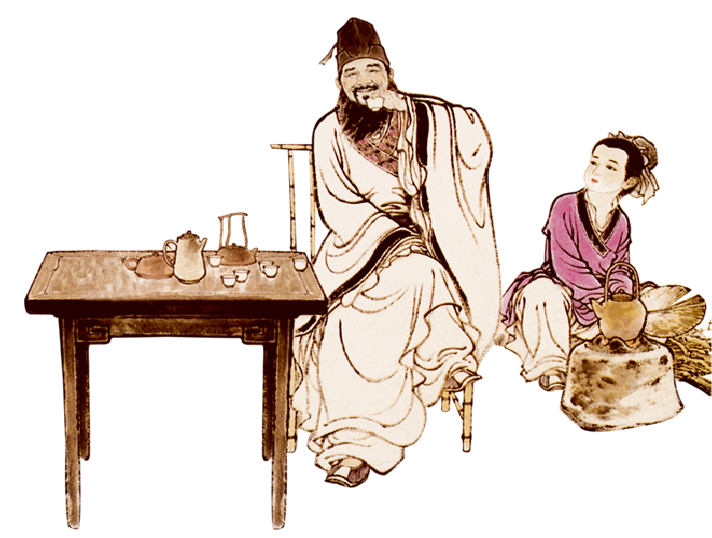 Herb Characteristics
Herb Characteristics
This herb has a short, thick rhizome, sometimes with remnants of the stem at the top. The roots are cylindrical, slightly curved, with some branching and fibrous roots, measuring 10-20 cm in length and 0.3-1 cm in diameter. The surface is reddish-brown or dark reddish-brown, rough, with longitudinal wrinkles. The outer skin of older roots is loose, often showing a purple-brown color, and tends to flake off in scales. The texture is hard and brittle, with a loose fracture surface that may have cracks or be slightly smooth and dense, with the skin part being reddish-brown and the wood part being grayish-yellow or purple-brown, with yellow-white vascular bundles arranged radially. The aroma is faint, and the taste is slightly bitter and astringent. Cultivated varieties are sturdier, measuring 0.5-1.5 cm in diameter, with a reddish-brown surface, longitudinal wrinkles, and tightly adhering skin that is difficult to peel off. The texture is solid, with a relatively smooth fracture surface, slightly keratinous.
Related Discussions
1. “Rihua Zibencao”: “Nourishes blood and calms the mind, regulates joints, treats cold and hot labor, joint pain, and paralysis of the limbs; relieves distension and pain, promotes muscle growth; breaks old blood and supplements new blood; calms pregnancy and expels dead fetus; stops bleeding, regulates women’s menstrual irregularities, relieves heart vexation; treats sores, scabies, goiter, and toxic swellings; headaches, red eyes; treats irritability in febrile diseases.”
2. “Bencao Biandu”: “Dan Shen has effects similar to Si Wu, can dispel stasis to generate new blood, is good for treating wind and dispersing masses, has a neutral nature and moves blood… Its sweet and bitter taste regulates menstruation, but it primarily opens the Ying level. Although Dan Shen has ‘Shen’ in its name, its blood tonifying power is insufficient, while its blood activating power is abundant, making it the primary herb for regulating the blood level. Its ability to treat wind-dampness and dispel masses is also due to blood movement dispelling wind and blood movement leading to mass resolution.”
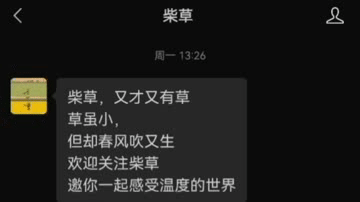
END
 Click the blue text below to learn more about past knowledge! A herb for releasing the exterior – Gui Zhi, a herb for releasing the exterior – Ge Gen, a herb for transforming dampness – Sha Ren
Click the blue text below to learn more about past knowledge! A herb for releasing the exterior – Gui Zhi, a herb for releasing the exterior – Ge Gen, a herb for transforming dampness – Sha Ren
Copyright notice: The text and images published are sourced from the internet. The copyright belongs to the original authors, and we express our deep respect to them. If there are any copyright disputes or other issues, please inform us promptly, and we will delete or take other appropriate actions immediately.

